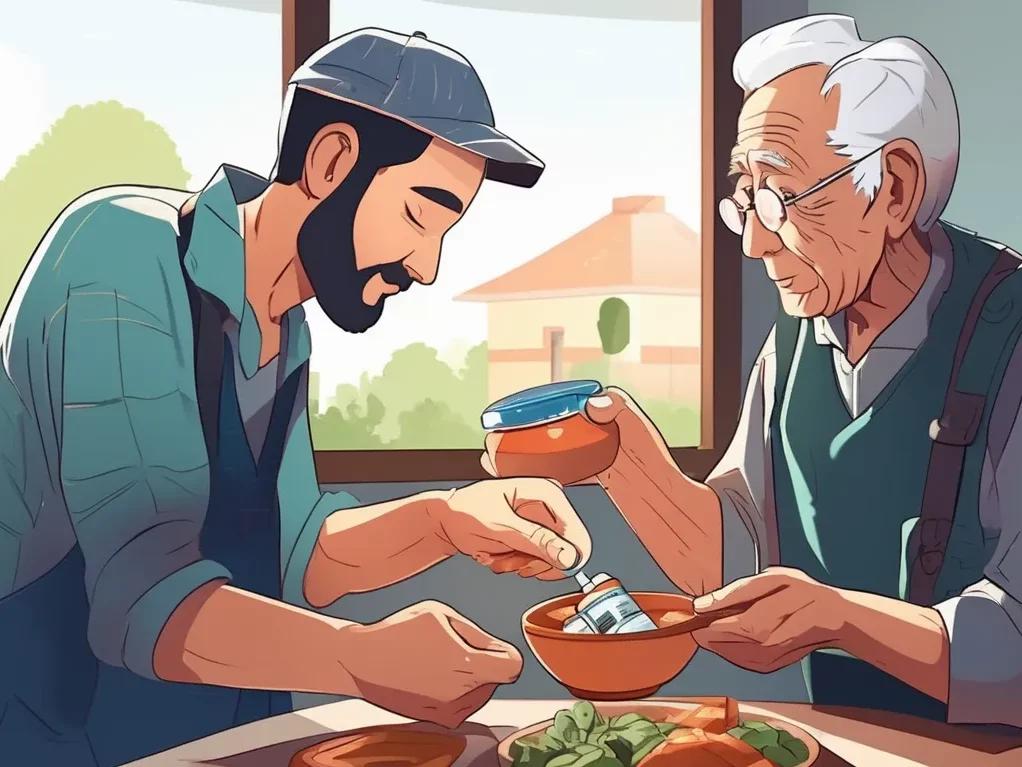In recent years, live-in senior care across England has undergone several significant changes. From reforms in the healthcare system to a growing emphasis on holistic support, the field has evolved to meet the diverse needs of older adults. Whether you’re in London, Brighton, or Liverpool, understanding these developments is crucial if you’re in the process of finding live in senior caregivers. Below, we explore the latest shifts in the sector, with a special focus on the increasing role and importance of male caregivers.
1. New Regulations and Quality Standards
The UK government and various regulatory bodies have placed a stronger emphasis on improving care for older adults. This push has led to:
- Enhanced Training: Senior caregivers must now undergo more robust training modules, covering everything from medication management to mental health awareness. This ensures that they can provide comprehensive support while also recognizing early signs of cognitive or physical decline.
- Licensing and Inspections: Reliable caregivers are expected to meet higher standards enforced by organizations like the Care Quality Commission (CQC). More frequent checks and inspections help ensure the caregiving environment meets safety, hygiene, and ethical standards.
- Personalization of Care Plans: One of the most prominent changes has been the move toward individual care plans, tailored to each senior’s unique needs. This personalization ensures that older adults receive the specific help they require—be that help with mobility, meal preparation, or emotional support.
2. The Rising Importance of Male Caregivers
While female caregivers have traditionally dominated the sector, male caregiver roles are increasingly in demand. Indeed, the presence of male care givers for elders (also referred to as male caretakers for elders) can bring a new dimension to senior care, offering seniors the option of choosing a caregiver that best fits their comfort level and needs.
- Physical Assistance: Many seniors require help with physically demanding tasks, like transfers and mobility support. Male caregivers can often assist with these tasks more comfortably, bringing added reassurance to both the client and their family.
- Personal Preferences: Some older adults, particularly male seniors, may feel more comfortable discussing sensitive topics or receiving personal care from someone of the same gender. This can foster a bond built on shared experiences and understanding.
- Emotional Support: Senior caregiver roles are not purely clinical. Loneliness and isolation are common in older adults, and having a caregiver who can offer companionship—whether through conversation, shared activities, or simply being present—can significantly improve a senior’s mental well-being.
3. Demand for Live-In Caregivers in London, Brighton, and Liverpool
As England’s population ages, cities like London, Brighton, and Liverpool are seeing a surge in demand for live-in senior caregivers. What’s driving this trend?
- Urban Living: In bustling metropolitan areas, families often struggle to balance work and personal commitments. A live-in caregiver eases the worry by providing round-the-clock support, enabling seniors to remain in their own homes rather than relocating to assisted living facilities.
- Cultural and Social Benefits: Larger cities offer abundant social opportunities—events, community centers, and cultural outings. With the help of a reliable caregiver, older adults can enjoy these amenities while staying safe and supported.
- Immediate Accessibility: In urban environments, medical facilities are usually nearby. Male caregivers (and caregivers in general) can quickly coordinate transport to hospitals, clinics, or rehabilitation centers, ensuring that seniors receive timely medical care.
4. Personalized Services and Tech Integration
Telemedicine and Remote Monitoring
Gone are the days when caregivers were limited to in-person duties alone. Modern senior caregivers often leverage technology for a more holistic approach:
- Health Monitoring Apps: Many caregivers use apps that track medication schedules, vital signs, and daily routines. These digital records can be shared with family members or healthcare providers to ensure a coordinated approach to care.
- Virtual Consultations: Seniors can connect with their GPs or specialists online, reducing the need for frequent travel and minimizing exposure to crowded waiting rooms.
Emotional Engagement
Today’s caregivers are also exploring virtual reality (VR) and other digital tools to combat loneliness. This could mean arranging virtual tours of museums, playing online games, or helping seniors connect with family around the world.
5. Finding the Right Caregiver
Finding live in senior caregivers can be a daunting task, but several factors can guide you:
- Credentials and Qualifications: Ensure that potential caregivers are licensed or certified and have undergone the necessary background checks.
- Expertise and Specialized Experience: If your loved one suffers from specific conditions—such as dementia, Parkinson’s, or mobility impairments—look for senior caregivers experienced in those fields.
- Personal Compatibility: Don’t underestimate the importance of chemistry. A male caregiver might be the ideal option for some seniors, especially if they prefer or require assistance from someone of the same gender.
- Reviews and References: Whether you’re searching in London, Brighton, or Liverpool, reviews and references remain invaluable. Speak with past clients or consult online testimonials to gauge a caregiver’s reliability and demeanor.
6. Looking Ahead: A Brighter Future for Elder Care
Live-in care in England is evolving. With higher standards, better training, and an increasing pool of male caregivers, the future looks promising for older adults who wish to remain in their own homes. This shift toward more inclusive and flexible services benefits everyone involved:
- Seniors receive individualized support.
- Families gain peace of mind knowing their loved ones are in capable, trustworthy hands.
- Caregivers benefit from clearer guidelines, advanced training, and the chance to make a meaningful impact in an older adult’s life.
So…
The changing landscape of live-in senior care in England is an encouraging development for older adults and their families. Whether you’re in London, Brighton, Liverpool, or any other region, the demand for reliable caregivers—including male care givers for elders—is growing. By understanding the new regulations, technological advancements, and the unique benefits male caretakers for elders can offer, you’ll be well-equipped to make informed decisions about the care of your loved ones.
If you’re seeking dependable, high-quality care, consider partnering with a specialized agency like Carers Living at Home. We connect families with professional senior caregivers, ensuring that each client receives compassionate, individualized attention. Embrace these positive changes and discover how live-in care can transform the quality of life for your aging loved ones today.

